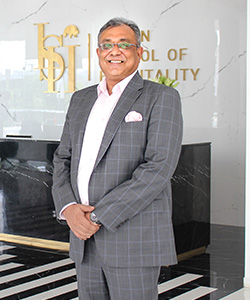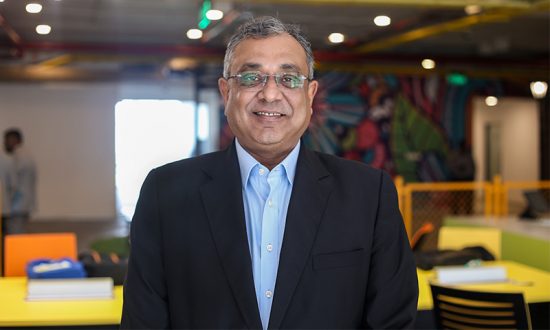Dilip Puri is the Founder & CEO of the Indian School of Hospitality (ISH), an institution of higher education focused on reshaping hospitality and culinary arts education for today’s generation and tomorrow’s businesses. Dilip is recognised as one of the thought-leaders on hospitality & hospitality education and is a frequent speaker at education and hospitality conclaves and a regular columnist on hospitality, education & technology trends in some of the country’s largest publications. In a conversation with Higher Education Digest, Dilip talks about the impact of COVID-19 on the hospitality sector, global trends in hospitality education, vision for the Indian School of Hospitality and much more.
The COVID-19 pandemic has massively impacted the hospitality sector. How has it affected the job opportunities of fresh graduates aspiring to be a part of the hospitality sector?
There have been significant changes, and the post-pandemic world requires people to be more agile and hands-on, specialising in new verticals, and willing to upskill. They need to possess soft skills, and many more opportunities have come with the amalgamation of technology and entrepreneurship. The scope of hospitality is not only limited to hotels but extends to a range of other industries.
What should be the focus of Indian hospitality colleges now to prepare students for the post-pandemic world? How is the Indian School of Hospitality responding to it?
As quoted by many think tanks and research publications, the post-pandemic world will place an increasing amount of importance on soft skills. Upskilling human capital, which is at the core of hospitality, and equipping them with business foundations, creative thinking and knowledge of consumer behaviour should be the focus of hospitality colleges. At the Indian School of Hospitality, we always strive to maintain a balance between academic and industry exposure. This translates into learning from real-life case studies with industry experts, deeper industry immersion with better-curated internships and enabling a more inclusive, growth-led environment.
Do you think India has an adequate number of institutes to create a quality workforce to support this growth?
While having an adequate number of institutions is important, it is not really about the quantity but the quality of education these institutions impart. This means that the curriculum, the pedagogy, and the integration of institutions with industry ensure what students are learning is relevant and that they are future-ready and have gained employment skills. In addition, the industry is now not limited to a country; it is global, and it becomes important for institutions to incorporate a learning mix of growth, strategy and leadership. All big corporations now look for a stellar service experience for their customers. The market has had a mind shift from being product to service-oriented, and it is imperative we teach students to be customer-centric.
What are the major changes that you have noticed in the way hospitality students are taught to engage with the world? What are the global trends in hospitality education?
There is more use of technology and more live case studies. What needs to change is curriculum and pedagogy. The foundations need to be stronger; there needs to be a move from the operational and vocational side of the education to include more of business, entrepreneurial and personality development. For example, a culinary student should also be given the foundation of business, so they are ready to begin their own venture and start their entrepreneurial journey if they want to.
What are the career opportunities available for students who completed Bachelors/Master Programs in Hospitality?
There is a world of opportunities for hospitality students out there. The common misconception that hospitality is limited to only hotels needs to be demystified, which is what we are doing with our education. Hospitality graduates are valued in diverse industries, including travel, event management, wellness and hospitality, cruises, aviation, high-end real estate, luxury retail, and many more. These jobs are high in task variety and personal interaction and demand an aptitude for innovation and independent thinking.
Tell us about your vision for the Indian School of Hospitality.
Our vision at the ISH is to disrupt and transform higher education for the hospitality and allied services industry. ISH exists for today’s generation and tomorrow’s businesses. We are at the forefront of the changes that are taking place in the world right now and want to work hand in hand with the industry to create environments and ecosystems where students thrive and come out as leaders of tomorrow. Not only do we want to strengthen the capabilities of the existing workforce, we want to arm the younger ones with skills that prepare them for the future, often for jobs, careers and businesses that do not even exist today.
What advice would you give to a student thinking about becoming a hospitality professional?
Don’t think twice. Just do it. The world will be your oyster, and you will find a plethora of opportunities across diverse sectors to fulfil your ambitions and aspirations.
More About Dilip Puri

Dilip served as the Managing Director of Starwood Hotels & Resorts South Asia from 2011 till the end of 2017 when he set out to be an education entrepreneur & founded ISH. During his time at the helm, Starwood’s South Asia portfolio grew from 24 to 54 operating hotels & a pipeline of over 100 hotels. He was also responsible for launching the luxury brands of Starwood with the entry of St. Regis & W hotels in the Indian market. From 2008-2010, Dilip was the CEO of Duet India Hotels, a private equity-backed hospitality development company. He had led the raise of circa USD 166 million in private equity capital.
Dilip has over three decades of experience in the hospitality industry & has worked with brands such as Oberoi, Taj, IHG, & Starwood in India, Australia, & Africa. Dilip has an economics degree from the University of Delhi, & completed his postgraduate studies at the Oberoi Centre of Learning & Development (OCLD).
Since the opening of the Indian School of Hospitality, Dilip has completed his Qualified Learning Facilitator (QLF) training at EHL, Switzerland, & besides his role as the founder & CEO, he is also a member of the ISH faculty & a full-time industry mentor to students.




